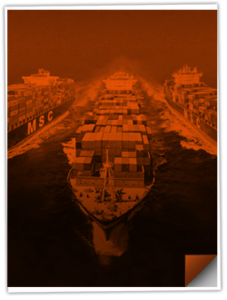Trade embargoes can vary in their scope and severity. Some might be comprehensive, affecting all types of trade, while others could be more targeted, focusing only on specific sectors like technology or arms. Regardless of their nature, embargoes can disrupt global trade patterns and have significant economic implications for the involved nations. As such, they are often seen as a double-edged sword, carrying both potential benefits and risks.
Why Do Trade Embargoes Happen?
Trade embargoes can occur for several reasons, and they’re often linked to political or economic disagreements. Here are some common reasons:
- Political Pressure: Countries might use embargoes to persuade another nation to change its policies. For example, if a country is violating human rights, others might impose an embargo to push for better behavior. These embargoes serve as a non-violent method to exert diplomatic pressure, aiming to bring about change through economic means rather than military intervention.
- Economic Sanctions: Sometimes, embargoes are part of economic sanctions aimed at crippling a country’s economy to force a change in behavior. This can involve restricting access to essential goods and services, disrupting key industries, or freezing financial assets. By affecting the economic stability of a nation, embargoes can make it challenging for the targeted country to continue its current policies.
- Security Concerns: Embargoes can also be imposed for security reasons, such as preventing the spread of weapons or nuclear technology. In this context, embargoes act as a preventive measure to stop the proliferation of dangerous technologies and materials that could threaten global security. They are often implemented alongside other international efforts to maintain peace and stability.
The Embargo Act
You might have heard about the Embargo Act of 1807. It’s a classic historical example where the United States tried to restrict trade with Britain and France during the Napoleonic Wars. The aim was to pressure these countries to respect American neutrality and maritime rights, but it ended up hurting the U.S. economy instead. A lesson learned! This act serves as a reminder of the potential unintended consequences of embargoes, as domestic industries and economies can suffer just as much as, if not more than, the targeted nations.
The Embargo Act also highlights the complexities involved in implementing trade restrictions. While the intention was to leverage economic power to achieve political ends, the act inadvertently caused economic hardship for American merchants and disrupted domestic trade. This historical example underscores the importance of carefully considering the potential economic repercussions when devising trade policies.
How Do Trade Embargoes Affect International Shipping?
Now, let’s get into how these trade embargoes impact the shipping industry.
Shipping Routes and Costs
When a trade embargo is in place, shipping routes can be disrupted. Ships might have to take longer routes, which means more fuel and higher costs. It’s like planning a road trip and finding out a major highway is closed. You’ve got to find another way, and it’s not always the most efficient. This can lead to increased transit times and logistical challenges, which may ripple through the entire supply chain.
Moreover, these rerouted shipments can create congestion in alternative ports or routes, compounding the challenges faced by shipping companies. With increased demand for certain routes, shipping fees may rise, and availability of transport vessels could decrease, further straining resources and increasing operational costs. As a result, companies may need to adjust their pricing strategies to accommodate these additional expenses.
Supply Chain Disruptions
Trade embargoes can cause major hiccups in the supply chain. If you’re shipping goods to or from a country under embargo, you might face delays or have to find alternative suppliers. It’s like when your favorite store stops carrying your go-to brand—you’ve got to find a substitute, and it’s not always easy. These disruptions can affect inventory levels, lead times, and production schedules, forcing companies to adapt quickly to maintain their operations.
The ripple effects of supply chain disruptions can be widespread, impacting not just manufacturers but also retailers and end consumers. Businesses might need to explore new markets or develop innovative supply chain strategies to mitigate the effects of an embargo. This could involve forging new partnerships or increasing reliance on local suppliers to reduce dependency on affected regions.
Financial Risks
There are also financial risks involved. If you’re caught trading with a country under embargo, you could face hefty fines or other penalties. Plus, the uncertainty around embargoes can make it hard to plan for the future, which is a real headache for shipping managers trying to keep things running smoothly. Companies must stay vigilant to avoid violating international laws and regulations, which could result in reputational damage and legal repercussions.
Embargoes can also lead to fluctuating market conditions, affecting exchange rates and commodity prices. This volatility can complicate financial forecasting and budgeting for businesses involved in international trade. To manage these risks, companies may need to invest in compliance training for their staff and implement robust monitoring systems to ensure adherence to trade laws.
Looking for help with your shipments? Reach out to our experts today!



